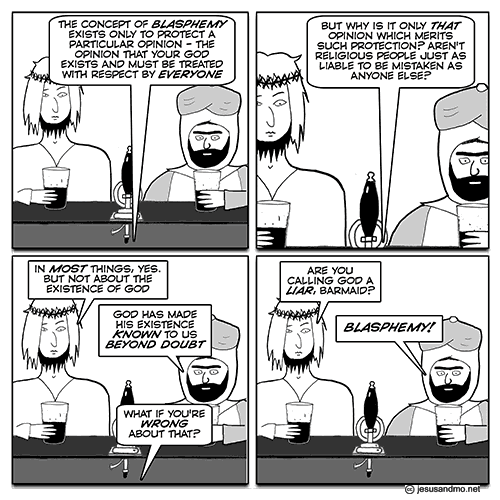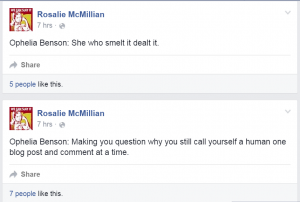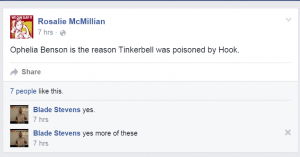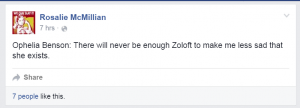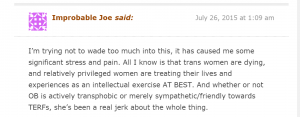At Slate, a piece titled Why I’m Still a Butch Lesbian.
Vanessa Vitiello Urquhart says she first started wearing what she calls “men’s clothing” a few years ago.
(Me, I would just call them clothes. I wear jeans – black ones when I need to clean up – and T shirts or turtlenecks, sweatshirts or sweaters. I don’t think of them as men’s clothes. Then again I don’t wear neckties – I guess I do think of them as men’s clothes. Why? Well…uh…I guess because I don’t wear them. Is this a little bit circular?)
VVU felt as if she’d been wearing an uncomfortable, ill-fitting costume her whole life, until she started wearing “men’s clothing.”
As I adjusted to this new information, it was hard not to notice that many of the people who shared my preference for the men’s section and my subtly masculine mannerisms had gone a step further and stopped identifying as women entirely. At times, it almost seemed as if, by not throwing my lot in with these pronoun creators and binary-rejecters, I might be just a little bit behind the times—a little square, uncool, perhaps even cis-sexist. Facebook has more than 50 possible gender identifiers. So why have I, a female-bodied person who wears men’s clothing, decided to stick with the increasingly old-fashioned “butch lesbian woman”?
Because why not?
In part, it’s because the language of gender identity has always been a bit bewildering to me—I’ve felt hungry, happy, gassy, and anxious, but never male or female. Even so, it has been tempting to interpret my experience in ways that separated it from that of other women. This is especially true because cis-gendered women have a distinct tendency to define themselves in ways that don’t include me. I hear women throw out things like, “As women, we all know how important it is to feel pretty,” or “We, as women, are naturally more tender and nurturing,” statements that never seem to include women like me. Not only do I dislike feeling pretty and prefer arguing to nurturing, I don’t even particularly like eating chocolate. Popular culture, and women themselves, often imply that I lack many of the most essential qualities of womanhood.
Me, I see that far more in popular culture than I do in women themselves. Maybe I just know all the wrong women, but I don’t think I know any who would say something as dipshit as “As women, we all know how important it is to feel pretty.” Pop culture on the other hand – dear god it’s all over it.
So in the past I’ve been quite tempted by the idea that perhaps I’m not a woman after all. I mean, I’m masculine in all sorts of ways—I am ambitious, logical, aggressive, strong, and highly competitive. And I’m certainly not silly, frivolous, dainty, weak, or overly emotional … Oh dear. That’s where I run into a major problem, isn’t it? When I start listing traits of mine that I’d call masculine, they’re always positive. They’re points of pride. Whereas when I list traits I lack that I’d call feminine, they’re negatives. It seems I can’t consider my own masculinity or lack of femininity without relying on some of the worst and most pernicious sex-based stereotypes. This suggests to me that the enterprise itself is suspect.
Exactly. There have to be women who have those traits that are put in the “masculine” box so that other women can feel “normal” and acceptable having them. I’m not going to hold my breath waiting for that to happen, but it’s what I would like to happen. (Does the same apply to traits like silly and weak? No. Those aren’t qualities to aspire to. If women are generally seen as being that…we need to keep on struggling.)
As girls grow up, they are bombarded by rules and restrictions governing the ways that they can be. I know I was—otherwise I wouldn’t have been a fully grown adult before I started wearing clothes that I found comfortable. These gendered rules confine girls’ choices and constrain their self-expression. Perhaps one day the gender binary will be dismantled totally, and we’ll all stop limiting our children by bringing them up as either males or females. But, in the meantime, gender continues to be one of the first things children learn to recognize about themselves and others, and for that reason I think it’s important to keep the boundaries of what can and can’t potentially be male or female propped open as wide as possible. It’s wonderful that people who feel uncomfortable with the gender they were assigned at birth are gaining strength and visibility. But, it’s just as important that young people, girls and boys and genderqueers alike, can have as many examples as possible of men and women who don’t conform to gender stereotypes. I like to think I’m doing my part for that by living as an aggressive, competitive, logical, and strong butch woman.
That’s how I think about the subject too.
(This is a syndicated post. Read the original at FreeThoughtBlogs.)
